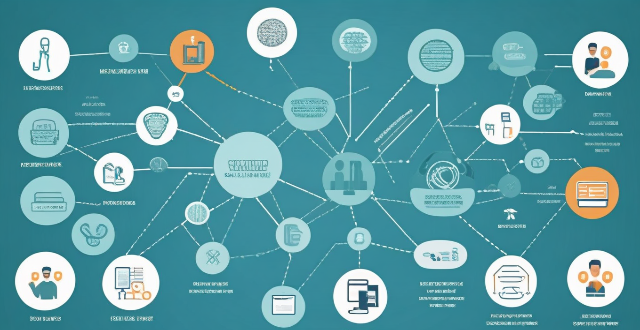Assets Legacy

How do I ensure that my digital assets are handled after my death ?
Managing digital assets after death requires careful planning and regular updates to keep pace with technological changes. This guide outlines steps to take to ensure your online presence is handled according to your wishes, including inventorying assets, choosing a digital executor, including assets in your will, using digital legacy services, setting up access and instructions, and reviewing and updating plans regularly. By following these steps, you can protect your online legacy and provide clarity for your loved ones.

What is the process for distributing assets after someone dies ?
The process for distributing assets after someone dies is known as probate. It involves filing the will, notifying beneficiaries and heirs, inventorying assets, paying off debts and taxes, and then distributing the remaining assets according to the terms of the will or state law if there is no will. The executor or administrator is responsible for managing the deceased person's estate and all potential beneficiaries and heirs must be notified of their rights and responsibilities.

How can I protect my assets from creditors or lawsuits ?
When it comes to protecting your assets from creditors or lawsuits, there are several strategies you can consider. These strategies aim to safeguard your wealth and ensure that you have financial security in case of legal actions against you. Here are some key steps to take: ### 1. **Create a Trust** A trust is a legal entity that allows you to transfer assets into it for the benefit of a third party, known as the beneficiary. By placing your assets into a trust, they are no longer directly owned by you, making them less vulnerable to creditors or lawsuits. There are different types of trusts, such as: - Revocable Living Trust: You can modify or revoke this type of trust during your lifetime. - Irrevocable Trust: Once created, you cannot change or cancel this type of trust. - Special Needs Trust: Designed for individuals with special needs, this trust helps them qualify for government benefits while still having access to funds for other expenses. ### 2. **Establish Limited Liability Entities** Forming limited liability companies (LLCs) or corporations can help protect your personal assets from business-related debts and lawsuits. These entities act as separate legal entities, meaning that their liabilities do not extend to your personal finances. Examples include: - Single Member LLC: Suitable for sole proprietors looking to limit their personal liability. - Multi-Member LLC: Ideal for partnerships where multiple members contribute to the business. - S Corporation: Offers pass-through taxation and limits shareholder liability to their investment in the company. ### 3. **Purchase Insurance** Having adequate insurance coverage is essential in protecting your assets from unexpected events. Make sure you have the following types of insurance policies: - Liability Insurance: Covers damages or injuries caused by you or your property. - Umbrella Policy: Provides additional liability coverage beyond your standard policies. - Homeowner's Insurance: Protects your home and belongings from damage or loss due to various perils. - Auto Insurance: Covers damages and injuries related to vehicle accidents. ### 4. **Diversify Your Assets** Spreading your wealth across different asset classes can help minimize the impact of any single lawsuit or creditor claim. Consider investing in: - Real Estate Investment Trusts (REITs): Allows you to invest in real estate without owning physical property. - Stocks and Bonds: Diversify your portfolio with various securities to reduce risk. - Precious Metals and Cryptocurrencies: Non-traditional assets that may offer protection against market volatility. ### 5. **Consult with Professionals** Before implementing any asset protection strategy, it's crucial to consult with professionals who specialize in this area, such as attorneys, financial advisors, and accountants. They can guide you through the process, ensuring that you comply with all legal requirements and maximize the effectiveness of your chosen strategies.

What is the difference between a will and a trust ?
The text discusses the differences between wills and trusts in estate planning, highlighting key areas where they diverge. A will is a legal document outlining distribution wishes for assets after death, requiring witnesses and taking effect posthumously. It allows control over assets during one's lifetime and goes through probate, a public process. Wills are flexible and generally less costly to create but offer no tax benefits. Conversely, a trust involves transferring property to a trustee for beneficiaries, with creation and effectiveness varying. Trusts can avoid probate, offering privacy and potential tax benefits but at a higher initial cost and less flexibility, especially if irrevocable. Choosing between them depends on individual needs and preferences.

What is probate, and how can I avoid it ?
This text discusses probate, the legal process of transferring a deceased person's assets to their heirs or beneficiaries. It explains why many choose to avoid probate, which can be time-consuming and costly, and outlines various methods for doing so, such as creating a revocable living trust, joint tenancy with right of survivorship, pay-on-death accounts, transfer-on-death designations, gifting assets during one's lifetime, designating beneficiaries on retirement accounts and life insurance policies, using a will with a probate avoidance clause, and considering state-specific strategies. The text emphasizes the importance of careful planning and consulting professionals to ensure assets are distributed according to one's wishes without court interference.

How do I create a comprehensive estate plan ?
Creating a comprehensive estate plan is essential to ensure your assets are distributed according to your wishes after you pass away. Here are some steps to help you create a comprehensive estate plan: 1. Determine your goals and objectives, such as who you want to inherit your assets and how you want them distributed. 2. Gather information about all your assets, including real estate, bank accounts, investments, life insurance policies, and personal property. 3. Choose beneficiaries for your assets, including individuals, charities, or trusts. 4. Consider tax implications, such as federal and state estate taxes, gift taxes, and generation-skipping transfer taxes. 5. Create legal documents such as a will, power of attorney, healthcare proxy, and living will to ensure your wishes are carried out in case of incapacity or death. 6. Set up trusts to manage your assets during your lifetime and distribute them after your death. 7. Review and update your plan regularly to ensure it remains current with changes in your life. Working with a qualified professional can help ensure that your estate plan meets your needs and achieves your desired outcomes.

How can women protect their assets and ensure long-term financial security ?
The article provides a list of strategies that women can employ to ensure their financial security over the long term. These include building an emergency fund, investing in retirement accounts, purchasing life insurance, creating a will, considering long-term care insurance, educating oneself about finance, working with a financial advisor, and prioritizing career development. Each of these steps is crucial in its own way for safeguarding one's assets and ensuring financial stability.

What documents are typically included in an estate plan ?
An estate plan is a collection of legal documents that outline how an individual's assets and property will be distributed after their death. These documents can include various types of legal instruments, each serving a specific purpose in the estate planning process. Here are some of the most common documents included in an estate plan: - Last Will and Testament: A legal document that states how a person's property and assets will be distributed after their death. - Durable Power of Attorney: A legal document that grants authority to another individual (agent) to act on behalf of the principal in financial matters. - Healthcare Power of Attorney: A legal document that designates someone to make healthcare decisions on behalf of the principal if they are unable to do so. - Living Will: A document that provides instructions about your wishes for medical treatment and end-of-life care. - Trusts: A legal entity that holds and manages assets for the benefit of one or more individuals (beneficiaries). - Beneficiary Designations: The process of naming who receives the proceeds of a bank account, retirement account, or life insurance policy upon the account holder's death. - Letter of Intent: A non-legal document that provides additional information about personal wishes, sentimental items, and instructions for final arrangements.

Do I need a lawyer to create an estate plan ?
Estate planning is important for ensuring that your assets are distributed according to your wishes after you pass away. While it is possible to create an estate plan without a lawyer, working with a legal professional can provide numerous benefits such as legal expertise, customized plans, and peace of mind. However, if you have a simple estate with few assets and no complicated family dynamics, creating a basic estate plan using online tools or templates may be sufficient. It is still important to consult with a lawyer to ensure that your plan meets all legal requirements and addresses any potential issues.

What is estate planning ?
Estate planning is a comprehensive process involving the organization, management, and distribution of assets to minimize taxes and ensure wealth transfer to heirs. Key elements include wills, trusts, power of attorney, health care directives, beneficiary designations, gifting strategies, tax planning, asset protection, long-term care planning, family business succession, and charitable giving. Estate planning ensures wishes are honored, provides financial security, minimizes taxes and legal fees, and protects beneficiaries.

How do DeFi tokens work ?
Decentralized Finance (DeFi) tokens are digital assets operating on blockchain technology, designed to facilitate financial transactions without intermediaries. These tokens can represent various assets like currencies, commodities, and cryptocurrencies. Key features of DeFi tokens include decentralization, smart contracts, and interoperability. They work through token issuance, utility within their respective projects or platforms, and governance mechanisms allowing holders to vote on important decisions related to the project's development. Benefits of DeFi tokens include accessibility, transparency, and innovation in financial products and services.

Can I include charitable giving in my estate plan ?
Including charitable giving in your estate plan is a way to support causes you care about, with potential tax benefits and the creation of a lasting legacy. You can include charitable giving through bequests in your will, charitable trusts, donor-advised funds, life insurance policies, retirement accounts, and donating appreciated stocks. It's important to consult professionals, understand tax implications, and regularly update your plan.

How can I minimize estate taxes in my estate plan ?
The text discusses strategies to minimize estate taxes in one's estate plan. These include understanding the basics of estate taxes, utilizing the lifetime exclusion, establishing trusts like irrevocable trusts and spousal lifetime access trust (SLAT), gifting to family and charities, life insurance planning through irrevocable life insurance trust (ILIT), using family limited partnerships or LLCs, seeking professional guidance, and staying informed about changes in tax laws.

What role does life insurance play in estate planning ?
Life insurance is a crucial tool in estate planning, offering solutions for liquidity needs, tax considerations, charitable giving, business succession, income replacement, and wealth preservation. It helps beneficiaries gain immediate access to cash, manage estate taxes, support philanthropic goals, facilitate business transitions, replace lost income, and transfer wealth efficiently. Life insurance policies can be tailored to fit individual needs, making them a versatile component of any comprehensive estate plan.

Can blockchain technology revolutionize the financial industry ?
Blockchain technology has the potential to revolutionize the financial industry by introducing a decentralized, transparent, and secure way of conducting transactions. In this article, we will explore how blockchain technology can transform the financial sector and discuss its benefits and challenges. Benefits of Blockchain in Finance: - Decentralization: Elimination of intermediaries and increased efficiency. - Transparency: Immutable records and audit trail for regulatory compliance. - Security: Distributed ledger and cryptography ensure secure transactions. Challenges of Blockchain in Finance: - Regulatory uncertainty: Lack of clear regulations and compliance issues. - Scalability: Limited throughput and ongoing research for scaling solutions. - Interoperability: Integration with legacy systems and lack of standardization. Potential Use Cases for Blockchain in Finance: - Payments and Remittances: Faster and cheaper cross-border transactions. - Trade Finance: Streamlined processes and automated smart contracts. - Securities Settlement: Real-time settlement and fractional ownership of assets. In conclusion, blockchain technology has the potential to revolutionize the financial industry by introducing a decentralized, transparent, and secure way of conducting transactions. While there are challenges to overcome, such as regulatory uncertainty, scalability concerns, and interoperability issues, the benefits of blockchain in finance are undeniable. As the technology continues to evolve and mature, we can expect to see increased adoption and innovation in the financial sector powered by blockchain technology.

Can sports tourism be made more sustainable ?
To make sports tourism more sustainable, strategies can beTo make sports tourism more sustainable, strategies can be: environmental sustainability, social sustainability strategies can be employed in three main areas: environmental sustainability, social sustainability, and economic sustainability. For environmental sustainability, reducing the carbon footprint through flight offsetting and promoting public transportation, building green venues with eco-friendly design and waste management plans, and conserving water through rainwater harvesting and water-efficient fixtures are recommended. For social sustainability, engaging local communities in event planning, ensuring accessibility and inclusivity, and promoting cultural exchange are important. Economic sustainability can be achieved by supporting local economies through local procurement and job creation, adhering to fair wages and working conditions, and investing in long-term legacy planning. Additionally, promoting sustainable practices through education and awareness, partnerships with NGOs, and encouraging sponsors and partners to adopt sustainable practices as part of their corporate social responsibility initiatives can further enhance the sustainability of sports tourism.

What is financial freedom ?
Financial freedom is a state of being where you have enough savings, investments, and cash flow to cover your living expenses without having to depend on a job or other forms of active income. It is the ability to live comfortably and pursue your passions without worrying about money.

Who won the latest NBA championship ?
The Golden State Warriors won the latest NBA championship, defeating the Boston Celtics in the 2022 NBA Finals. The key moments of their championship run include sweeping the Denver Nuggets in the first round, defeating the Memphis Grizzlies in six games, winning against the Dallas Mavericks in five games in the Western Conference Finals, and emerging victorious against the Boston Celtics in a hard-fought 4-2 series win in the NBA Finals. Stephen Curry, Klay Thompson, and Draymond Green were standout players for the Warriors throughout the playoffs, with Curry being named the NBA Finals MVP. This championship adds to the Warriors' legacy as one of the most successful teams in recent NBA history, marking their fourth championship in eight years and solidifying their status as a dynasty.

What are the benefits of running a marathon ?
Running a marathon offers numerous benefits, including improved physical health like cardiovascular fitness and weight management, mental health benefits such as stress relief and discipline, social advantages through community involvement and charity fundraising, lifestyle changes leading to healthy habits and better time management, and personal achievement in overcoming challenges and creating a legacy. Overall, it's an activity that enriches various aspects of life and provides a platform for significant personal growth.

Are there any ethical considerations that need to be addressed before embarking on interstellar exploration ?
The text discusses the ethical considerations for interstellar exploration, including potential risks and benefits, as well as the impact it may have on future generations. The risks include the risk to human life due to harsh conditions in space, resource allocation that could be diverted from addressing pressing issues on Earth, and cultural impact promoting a culture of colonization and exploitation. The benefits include scientific discovery, technological innovation, and collaboration and peace among nations. The impact on future generations involves responsibility to preserve knowledge and ensure sustainability, as well as opportunities for new worlds and a legacy of exploration. It is crucial to carefully weigh these factors and address ethical considerations before proceeding with plans for interstellar travel.

Can you share a story about a woman who has made significant contributions in science or technology ?
Marie Curie's life and work epitomize scientific breakthrough and personal resilience. Born in a restricted society, she overcame numerous obstacles to become the first woman to win a Nobel Prize and the only person to win in two different sciences. Her pioneering research on radioactivity led to advancements in physics, chemistry, medicine, and technology. Despite facing significant gender bias, Marie's dedication and achievements have made her a timeless inspiration for scientists worldwide.

How do economists evaluate the effectiveness of a particular economic stimulus plan ?
Economists evaluate the effectiveness of economic stimulus plans by considering factors such as GDP growth rate, inflation rate, unemployment rate, job creation, government spending, deficit and debt levels, personal consumption expenditures, consumer confidence, sectoral analysis, regional impact, sustainability, and legacy. These evaluations help determine whether the plan has achieved its intended goals and guide future policy decisions.

What are the consequences for athletes who engage in unethical behavior during competitions ?
Consequences for Athletes Engaging in Unethical Behavior during Competitions Athletes who engage in unethical behavior during competitions face a range of consequences that can have significant impacts on their personal and professional lives. These consequences include legal and regulatory sanctions, damaged reputation, lost sponsorships, reduced earning potential, stress and anxiety, social isolation, self-esteem issues, legacy, mental health, and career changes. It is essential for athletes to understand the potential consequences of their actions and strive to maintain ethical behavior at all times.

What are the challenges faced during a network expansion project ?
When expanding a network, organizations may face various challenges that can impact the success of the project. These challenges include budget constraints, technical difficulties, security concerns, downtime and disruptions, training and support requirements, integration with existing systems, regulatory compliance, project management issues, change management, and future-proofing considerations. By proactively addressing these challenges, organizations can successfully complete network expansion projects while minimizing disruptions and maximizing the benefits of the expanded network.

What topics are commonly discussed on celebrity talk shows ?
Celebrity talk shows cover a variety of topics, including personal life, career achievements, controversies, fashion, and future plans. These discussions offer fans an opportunity to learn more about their favorite stars and connect with them on a deeper level.

In what ways do major sporting events influence city growth and regeneration ?
Sporting events, especially major ones like the Olympics or FIFA World Cup, significantly impact city growth and regeneration. This influence spans infrastructure improvements, tourism boost, economic activity, urban planning, and social-cultural dynamics. Cities often invest in new public transport systems, upgraded roads, modernized utilities, and waste management strategies during these events. The global spotlight attracts international visitors and creates temporary jobs and business opportunities. Hosting major events involves redeveloping neglected areas and adopting sustainable development practices. Community engagement, cultural exchange, and a sense of pride are also fostered. However, careful resource management and effective planning are crucial for long-term positive outcomes beyond the event's duration.

What is the significance of rebalancing an investment portfolio ?
Rebalancing an investment portfolio is a crucial aspect of maintaining a well-diversified and risk-appropriate investment strategy. It involves periodically adjusting the asset allocation of your portfolio to align with your original investment goals and risk tolerance levels. The significance of rebalancing an investment portfolio includes maintaining diversification, controlling risk exposure, and staying disciplined. The frequency of rebalancing depends on various factors such as your investment goals, risk tolerance, and market conditions. Rebalancing an investment portfolio involves several steps, including determining your target allocation, evaluating your current allocation, selling off high-performing assets, reinvesting proceeds into underperforming assets, and reviewing and adjusting your portfolio regularly.

How do I create a diversified portfolio in the stock market ?
Creating a diversified portfolio is an essential strategy for mitigating risk and maximizing returns in the stock market. Here are some steps to help you create a diversified portfolio: 1. Determine your investment goals, including factors such as your risk tolerance, investment horizon, and financial objectives. 2. Allocate assets across different asset classes, such as stocks, bonds, cash, and other securities. 3. Select securities within each asset class that align with your investment goals and are not highly correlated with each other. 4. Rebalance your portfolio regularly to maintain your desired asset allocation. 5. Monitor the performance of your portfolio and make adjustments if necessary. By following these steps, you can create a well-diversified portfolio that aligns with your investment goals and helps you achieve long-term financial success.

How have historical female figures influenced modern-day feminism and women's rights movements ?
This article explores how historical female figures have influenced modern-day feminism and women's rights movements. It discusses early pioneers like suffragettes and abolitionists, civil rights era figures such as Rosa Parks and Coretta Scott King, second-wave feminists including Betty Friedan and Gloria Steinem, and modern-day feminists like Malala Yousafzai and the #MeToo movement. These individuals have played crucial roles in shaping the course of feminism and women's rights movements, paving the way for future generations to fight for equality and justice.